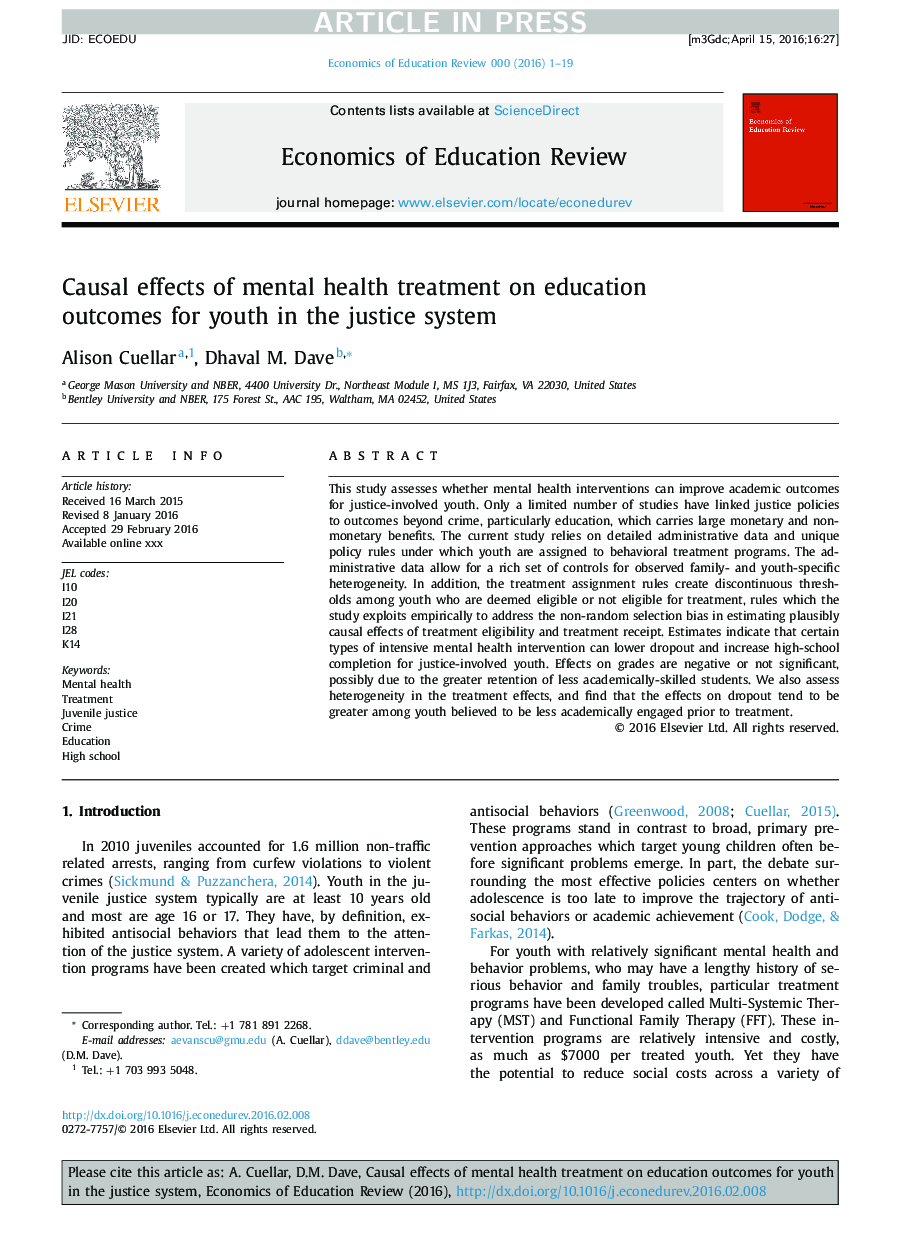| Article ID | Journal | Published Year | Pages | File Type |
|---|---|---|---|---|
| 6840848 | Economics of Education Review | 2016 | 19 Pages |
Abstract
This study assesses whether mental health interventions can improve academic outcomes for justice-involved youth. Only a limited number of studies have linked justice policies to outcomes beyond crime, particularly education, which carries large monetary and non-monetary benefits. The current study relies on detailed administrative data and unique policy rules under which youth are assigned to behavioral treatment programs. The administrative data allow for a rich set of controls for observed family- and youth-specific heterogeneity. In addition, the treatment assignment rules create discontinuous thresholds among youth who are deemed eligible or not eligible for treatment, rules which the study exploits empirically to address the non-random selection bias in estimating plausibly causal effects of treatment eligibility and treatment receipt. Estimates indicate that certain types of intensive mental health intervention can lower dropout and increase high-school completion for justice-involved youth. Effects on grades are negative or not significant, possibly due to the greater retention of less academically-skilled students. We also assess heterogeneity in the treatment effects, and find that the effects on dropout tend to be greater among youth believed to be less academically engaged prior to treatment.
Related Topics
Social Sciences and Humanities
Economics, Econometrics and Finance
Economics and Econometrics
Authors
Alison Cuellar, Dhaval M. Dave,
